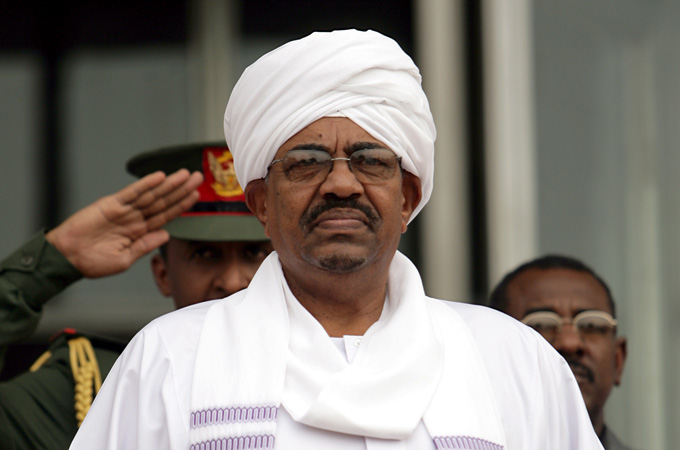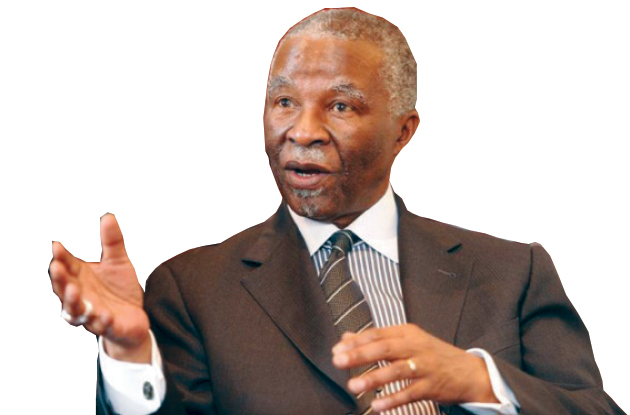Sudan says to push for full lifting of US sanctions

Khartoum — Sudan said on Thursday it will press on with efforts to achieve a full lifting of US sanctions against Khartoum, even as it hoped Washington would reverse its decision to extend a decades-old trade embargo.
On Tuesday, US President Donald Trump prolonged a review period to October 12 before his administration decides whether or not to permanently lift the sanctions imposed on Khartoum in 1997.
His predecessor Barack Obama had eased the sanctions in January, but kept Sudan on review for six months, a period that ended on Wednesday.
Trump’s order to extend the review period angered his Sudanese counterpart President Omar al-Bashir who ordered Khartoum to halt ongoing talks with Washington over the sanctions file until October 12.
Bashir’s National Congress Party also warned on Thursday that any unrest that erupts in Sudan will be because of the US extension.
But Foreign Minister Ibrahim Ghandour attempted to rein in the rising tension, vowing that Khartoum will work with Washington to ensure the embargo is fully lifted.
“We hope that the United States reverses its decision and sticks to its commitments,” Ghandour told reporters.
He said the Sudanese foreign and defence ministries will “continue communicating” with their US counterparts to ensure that the sanctions are lifted.
Sudan’s powerful National Intelligence and Security Service (NISS) will also continue communicating with the Central Intelligence Agency (CIA), he said.
Obama had made the permanent lifting of the sanctions dependent on Sudan’s progress in five areas of concern at the end of the review period. Obama’s five conditions include giving more access to humanitarian workers in war zones, counterterrorism cooperation with the United States, an end to hostilities against armed groups in Sudan and halting support for insurgents in neighbouring South Sudan.
In his executive order, Trump extended the deadline by three months, saying “more time is needed” to review Khartoum’s progress on these five conditions.
In recent months, several US as and Sudanese officials have said that Khartoum had made progress on meeting Obama’s conditions, also known as “five tracks”.
Ghandour said Khartoum had in fact gone “too far” in engaging with Washington.
“Which is why what has been positively achieved, we will build on it without jeopardising or endangering our sovereignty,” he said.
He said that Washington should realise that Sudan was “important for peace and security” in the region. “We are not a small regional power,” the minister said.
Washington imposed a complex set of economic sanctions on Sudan in 1997 for its alleged backing of Islamist militant groups. Al-Qaeda leader Osama bin Laden, who was killed in a US commando raid in Pakistan in 2011, was based in Khartoum from 1992 to 1996.
Washington has also pointed to accusations of scorched-earth tactics by Khartoum against ethnic minority rebels in war-torn Darfur.
At least 300 000 people have been killed and 2.5 million displaced since the Darfur conflict erupted in 2003, the UN says. Bashir himself is wanted for genocide and war crimes related to the conflict in Darfur, charges he steadfastly denies.
Some campaign groups had called on the Trump administration to maintain the sanctions on Sudan, citing Khartoum’s record of human rights violations.
Meanwhile, the United Nations on Thursday said it is considering putting a peacekeeping base in South Sudan’s troubled Yei region, saying the city has “gone through a nightmare” in recent months. It would be the first such expansion since civil war began in 2013.
“I can see the prosperity that was once here,” the peacekeeping mission’s chief, David Shearer, told residents on his first visit. But stories of rape, killings and abductions are common in what has become one of South Sudan’s most volatile cities.
The UN warned of growing ethnic violence there after bodies with bound hands were found late last year. In May, a UN report said pro-government forces killed 114 civilians in Yei between July and January, brutally raping girls and women in front of their families.
Three months ago, 37-year-old Suzanne Minala was abducted by rebels on the edge of Yei and held for 30 days. Raped and beaten nightly, the mother of two said she returned home to find four of her relatives had been killed in her garden. She suspects it was government soldiers.
“The government doesn’t want to hear about crimes because they kill people,” Minala told The Associated Press, rubbing a scar on her wrist where she had been bound.
Since the fighting reached Yei a year ago, 70 percent of the population has fled. Remaining residents say it’s like living in a prison. The city is under government control but surrounded by opposition forces, and both have restricted access to food and aid. — AFP-AP.








Comments